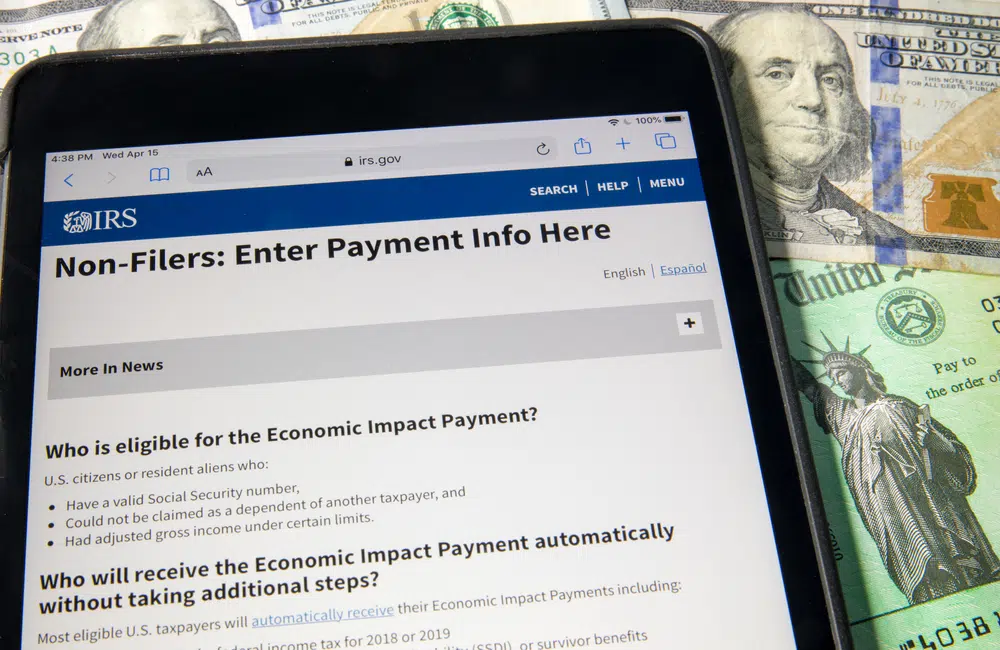IRS Scams by Email Continue with Third Round of Economic Impact Payments
Home Help Center IRS Scams by Email Continue with Third Round of Economic Impact Payments

- Criminals claiming to be with the Internal Revenue Service (IRS) are targeting people with emails as taxpayers continue to receive the third round of Economic Impact Payments (EIP) that began in March 2021.
- Identity criminals send messages claiming you can receive an EIP Payment. They say the IRS is sending payments each week to qualified individuals as they continue to process tax returns.
- However, messages like these are IRS scams seeking your personal and financial information to commit identity theft and fraud.
- The IRS will never email, text, call or send a message on social media to anyone. If you receive a message claiming to be from the IRS, ignore it. You are also encouraged to forward it to the IRS at [email protected] and note that it seems to be a phishing scam seeking your personal information.
- To learn more, or if you believe you have received IRS scams by email, contact the Identity Theft Resource Center (ITRC) toll-free by phone (888.400.5530) or live-chat at www.idtheftcenter.org to speak with an expert advisor.
The third round of Economic Impact Payments (EIP) from the Internal Revenue Service (IRS) began to go out in March 2021. However, the Identity Theft Resource Center (ITRC) continues to receive messages about IRS scams by email, like the one below.


According to an official IRS notice, the Service is still sending EIP Payments weekly as 2020 tax returns are processed. Criminals have been striking with scams since the first stimulus package was passed in 2020. While many EIP Payments have been received, you should beware of scams asking for payment to receive compensation and remember that the IRS will never call, message or email anyone.
Who are the Targets?
U.S. Taxpayers
What is the Scam?
In the latest IRS scams by email, identity criminals send emails to inboxes claiming that they are eligible to receive a payment after the last annual calculation of their “fiscal activity.” The email goes on to say that each week the IRS will continue to send the third EIP Payments to eligible individuals as they process tax returns. The phishing emails also include a button to “claim my payment.”
What They Want
Scammers want you to either respond or click on a malicious link so they can steal your personal and financial information to commit different forms of identity crimes, including financial identity theft.
How to Avoid Being Scammed
- Ignore emails, texts or social media messages claiming to be from the IRS. Do not respond to the messages or click on any links or attachments because they could be malicious. Acting on the IRS scams by email, text or social media could lead to having your information stolen. The IRS will not email or message anyone. Do not share any personal information, including credit card and bank account numbers, except on the official www.IRS.gov website or the representative you contacted by calling the IRS.
- Ignore calls claiming to be from the IRS. While IRS scams by email continue to circulate, identity criminals could call you, too. If you receive an unsolicited call claiming to be from the IRS, ignore it. The IRS will not call anyone unsolicited, either.
- Send phishing emails to the IRS. The IRS asks anyone who receives a phony email to forward it to [email protected] and note that it seems to be a phishing scam seeking your information.
- Report the identity crime. You can report any identity fraud to the Federal Trade Commission (FTC) by visiting www.IdentityTheft.gov.
If you have received IRS scams by email, text message, social media or by phone, you can also contact the ITRC toll-free by calling 888.400.5530 or using the live-chat function at www.idtheftcenter.org. ITRC expert advisors will help you create a resolution plan with the steps you need to take.
How much information are you putting out there? It’s probably too much. To help you stop sharing Too Much Information, sign up for the In the Loop.
Get ID Theft News
Stay informed with alerts, newsletters, and notifications from the Identity Theft Resource Center

